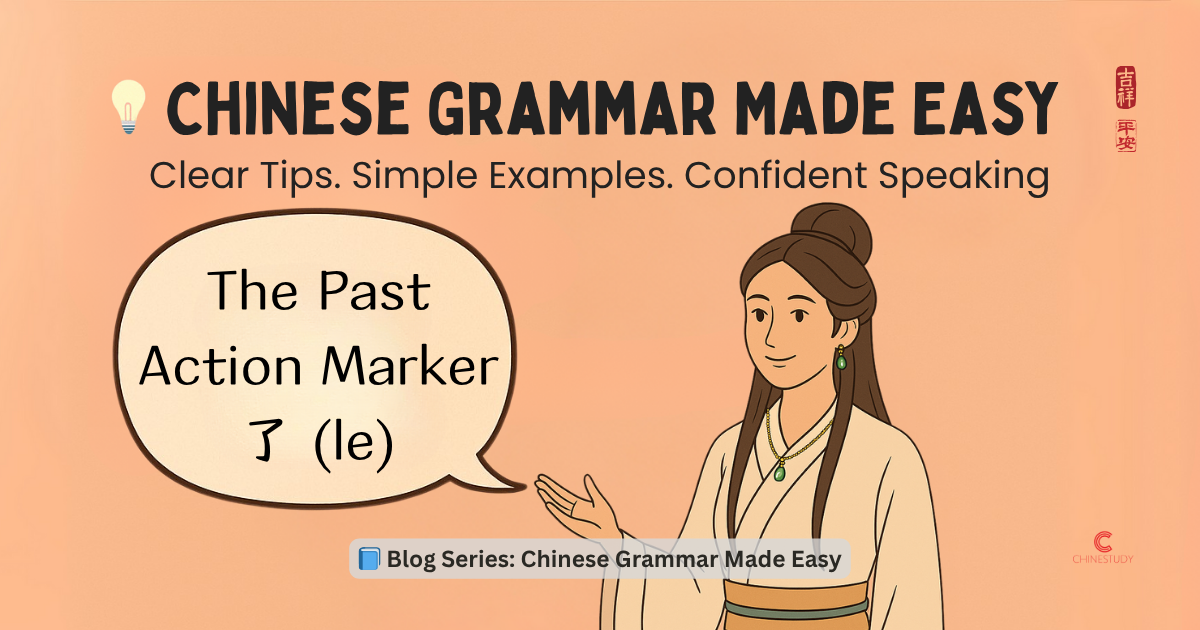📝 How to use 了 (le) to talk about past actions in Chinese

Ever wondered how to say “I ate,” “He left,” or “They watched a movie” in Chinese? You’ll need one tiny word: 了 (le).
Let’s break it down and make it easy!
📚 What Is 了 (le)?
In Mandarin Chinese, 了 (le) is a past action marker. It shows that something has happened or an action is completed.
Think of it like the past tense in English, but instead of changing the verb, we add "了".
🧠 It doesn’t mean “past” by itself — it only shows that an action has been completed.
🧱 Sentence Structure
Subject + Verb + 了 + Object (Optional)
Just remember:
- 📌 了 comes right after the verb.
- 📌 Use it when an action is finished.
💡 Examples
1. 我吃了饭。
(Wǒ chī le fàn.)
→ I ate (a meal).
2. 他走了。
(Tā zǒu le.)
→ He left.
3. 他们看了电影。
(Tāmen kàn le diànyǐng.)
→ They watched a movie.
📝 Practice Time!
Change the following into Chinese using 了:
1. I watched a movie.
→ 我________电影。
2. She bought clothes.
→ 她________衣服。
3. We drank tea.
→ 我们________茶。
✅ Answers:
1. 我看了电影。 (Wǒ kàn le diànyǐng)
2. 她买了衣服。 (Tā mǎi le yīfu)
3. 我们喝了茶。 (Wǒmen hē le chá)
⚠️ Common Mistake
🚫 我了吃饭。
Wrong word order! 了 should go after the verb.
✅ 我吃了饭。
(Wǒ chī le fàn.)
→ I ate.
🎯 Quick Tip to Remember
🎯 In English we say “I ate” (past form),
In Chinese we say “I eat le” — 吃了!
The verb stays the same — just add 了!
🚀 Your Turn! Try It in Real Life
What’s something you did today?
Try saying it in Chinese with 了!
💬 You can say:
"我喝了咖啡。" (I drank coffee.)
"我吃了午饭。" (I ate lunch.)
👉 Say your sentence to a friend or yourself aloud!
Practice makes perfect!
🌟 Want step-by-step guidance?
👉 Check out my course: Mandarin Chinese Grammar Masterclass for Beginners.
👉 Explore the full blog series: Chinese Grammar Made Easy.
Thank you for subscribing!
Have a great day!